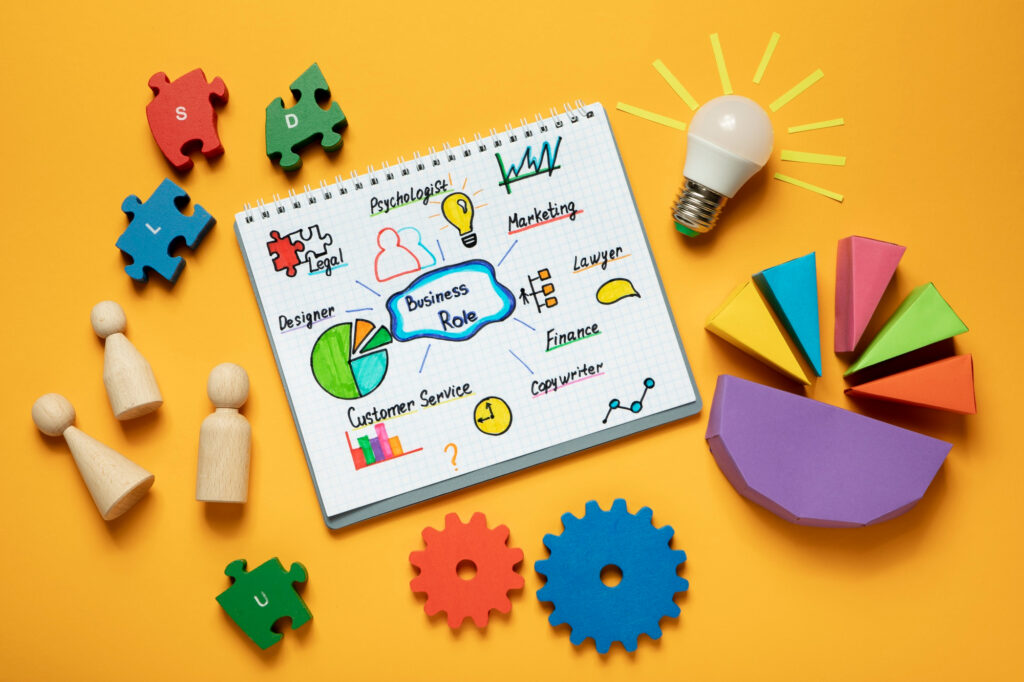What is Holistic Development?
Imagine your child is performing exceptionally well in academics but lacks social skills or the interpersonal skills are outstanding but the health of the child is poor. This results in an imbalance and hinders them from realizing their true potential.
Holistic development refers to the social, emotional, physical, and intellectual growth of an individual. These four pillars are critical for success on personal and professional fronts, improving the overall well-being of the child. It acknowledges the fact that education has to go beyond textbooks and rote learning.
Why is Holistic Development Important in School?
Today, education is overpowering the importance of holistic development, which has taken a backseat. Children spend the majority of their time in school and are influenced by the school’s atmosphere.
Holistic development is responsible for developing a whole child. Therefore, schools should emphasize and encourage students to participate in sports, extracurriculars, quizzes, and debate competitions. It should equip children with skills like emotional intelligence, communication, and critical thinking that foster them to become well-rounded individuals.
There are a few best schools that consider holistic development a top priority and have created unique approaches to ensure it.
5 Aspects of Holistic Development
There are five aspects that contribute to the holistic development of the child.
Physical Development
Physical development is an essential part of holistic development as it enhances motor skills and keeps the child physically active and fit. Running, cycling, exercising, yoga, or sensory games soothe the mind, stimulate mechanisms and activate the senses. Encourage children to pick up a sport and perform small activities like clapping, snapping, and paper cutting to improve their motor skills.
Social Development
Social development is necessary to socialise and interact with people. It helps in building confidence and forming healthy and caring relationships. Children should focus on developing certain social skills like respecting, greeting, apologising, cooperation, empathy, patience and responsibility. To promote social development, encourage them to make friends, communicate clearly, ask questions, show compassion, resolve issues peacefully, and be honest in every sort of relationship.
Emotional Development
Oftentimes, emotions take over logic. As students, one should not shy away from expressing their feelings to teachers and parents. They can help them overcome any issue and manage emotions. This builds emotional intelligence and resilience, placing us in a position to tackle any challenge wisely. To promote emotional development in the child, talk to them in a calm tone, smile, spend quality time with them and encourage them to confess their feelings.
Intellectual or Cognitive Development
Cognitive development refers to the ability to think, analyse, solve problems, form informed opinions, learn skills and languages, pay attention or improve memory. This aspect contributes to critical thinking and builds a positive attitude. Activities like debates, group discussions and role playing are beneficial in improving the cognitive skills of children. Discuss diverse topics, have open-ended conversations, encourage decision-making, and play games like crosswords, puzzles, and jigsaw fits.
Spiritual Well-being
Spiritual well-being is a way to connect with the inner self, recognise goals and understand the purpose of life. This puts children on the right track and pushes them to be goal-orientated. It improves the mental health of the child. This may include offering prayers, practicing meditation or mindfulness, expressing gratitude, following peace, and showing compassion.
Holistic Development Skills
- What are Gross Motor Skills?
Gross motor skills involve the big movement of large muscles and body parts like hands and legs while performing activities such as clay moulding, jumping, dancing, etc. These skills improve the functioning of bones and muscles. Small children start developing these skills while crawling, sitting up or throwing dolls. To keep the skills in check, perform certain physical activities like swimming, aerobics, skating, and so on.
- What are Fine Motor Skills?
Fine motor skills involve small movements that are made with precision by small muscles in body parts like the mouth, feet, and fingers. These skills are essential to performing everyday tasks like blinking, painting, combing, eating, writing, playing a musical instrument, etc. These skills also enhance brain activity and hand-eye coordination. This results in the development of the cognitive abilities of the child.
Conclusion
Holistic development has become a necessity in today’s evolving times. Schools, teacher and parents must focus equally on all the aspects of a child’s growth and development. Self-awareness, intellectual capabilities, physical fitness and emotional intelligence facilitate a bright future and create a wonderful personality of the child. Thus, it has to be promoted more than ever before.
If you, as a parent or guardian, are struggling to teach your child good manners, then we have provided some insightful tips to instill good manners in a child.
Holistic education focuses on nurturing emotional, social, and academic growth. This is supported through moral teaching, parental engagement, and extracurricular opportunities. Explore how such schools stand out as international schools in bangalore and top schools in north bangalore.
Frequently Asked Questions (FAQs)
What are the 4 C’s of Holistic Development?
Communication, Critical Thinking, Collaboration and Creativity are the four C’s of holistic education.
What are the 4 Pillars of Holistic Development?
The four major pillars that contribute to the holistic development of the child include cognitive development, emotional development, social development, and physical development.
What is the Goal of Holistic Development?
The goal of holistic development is to promote the growth of a child in every aspect: physical, mental, social, and emotional, and also to make them well-rounded individuals and prepare them for future challenges.



